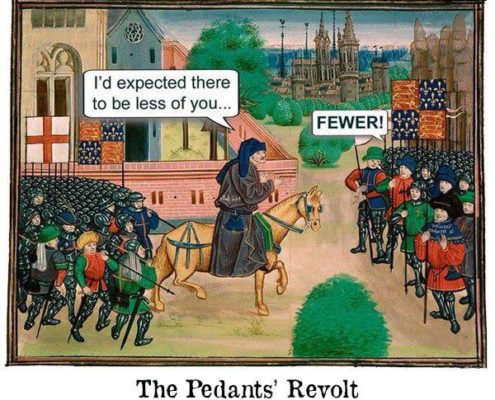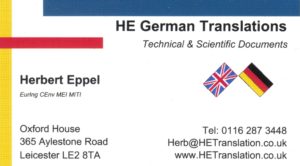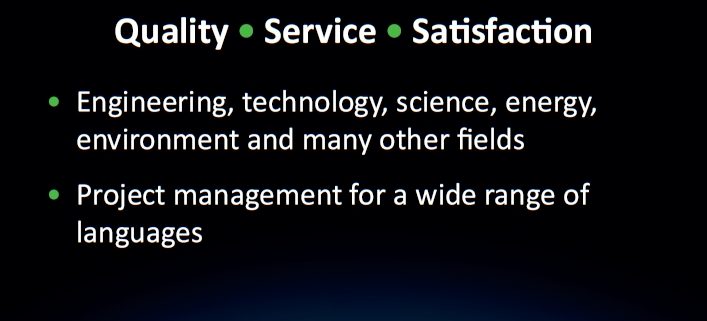Pedantry
“Can one be a translator without being a pedant?“, a colleague exclaimed rhetorically in an e-group for translators. The answer is clearly a resounding: “No!”

On the other hand, in an article published in November 2015 under the heading “Taking on the pedants” in the Guardian Weekly, Steven Pinker is reported as saying: “Linguists have long known that many of the alleged rules of usage are actually superstitions“.
Discuss…















